How Long Does MDMA (Ecstasy) Stay in Your System?
Under the Misuse of Drugs Act (the legislation that informs all illegal drug-related laws in the UK) MDMA is categorised as a Class A drug.
This means that using, selling or producing MDMA is illegal, and can have severe consequences.
Drug Chemistry
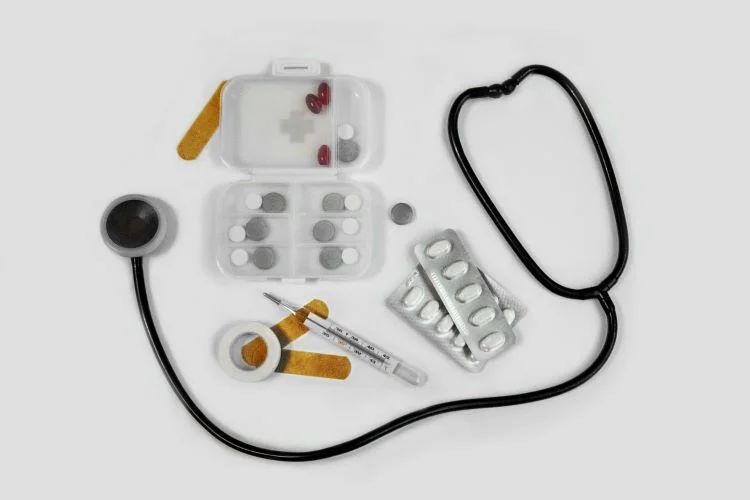
MDMA is short for methylenedioxymethamphetamine. [1]
It is a substance that is known for its ‘party drug’ and ‘club drug’ status.
MDMA is quite a complex drug on a chemical level, which means that it can affect the user in many different ways.
Drugs are usually organised into different groups, the most common being:
- stimulants (that speed up the reception of messages in the brain)
- depressants (that slow down the messages)
- opioids or narcotics (painkillers)
- and hallucinogens (that change the way you feel, think, and relate to the world).
MDMA has both stimulant and hallucinogenic properties. [2]
Because of this, it is known as a psychoactive or psychotropic drug. [3]
MDMA is also known as an empathogen, which is a specific kind of psychotropic drug that works to impact the emotional behaviour of the individual user. [4]
How Common is MDMA Use?
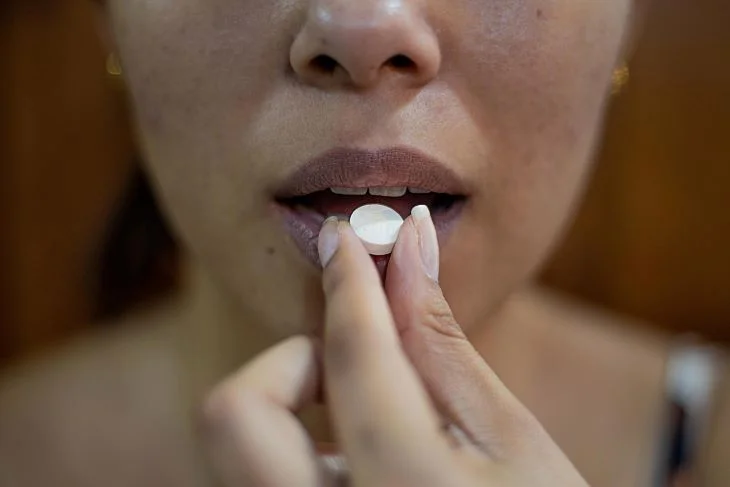
Research published by the UK government reported that MDMA is the second most commonly used stimulant in the country.
The research records that in 2019:
- 1.6% of adults in England and Wales
- 1.6% of adults in Scotland
- and 0.8% of adults in Northern Ireland
had reported taking MDMA in the past year. [5]
The report found that MDMA use in young adults (16-24-year-olds) is increasing annually, with 4.7% of 16-24-year-olds reported having taken MDMA in 2018-2019 compared to 2.9% in 2012-2013. [6]
What are the Different Names for MDMA?
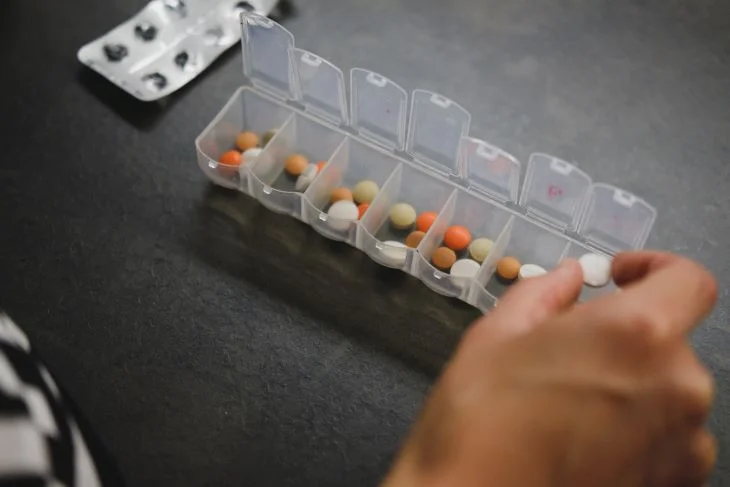
Methylenedioxymethamphetamine (MDMA) is known by many different names.
MDMA is commonly known as ecstasy, however, it also has a wide range of different street names, including:
- Adam
- beans
- biscuit
- caps
- clarity
- disco
- disco biscuit
- E
- Eckies
- Eve
- flippers
- lover’s Speed
- Molly
- peace
- pills
- XTC [7]
What are the Different Types of MDMA?

Whilst MDMA is often known by the name ecstasy (and vice versa) some of the tablets sold under the name of ecstasy may not contain much Methylenedioxymethamphetamine at all. Instead, some of these drugs can be ‘cut’ (mixed) with other substances.
This means that it is almost impossible to identify how many different kinds of MDMA or ecstasy substances there are out there.
Some forms of MDMA come with stamped logos or images on them.
However, just because two pills have the same logo or image, it does not always mean that they have the same contents or will cause the same effects. [8]
What are the Different Ways that MDMA Can Be Used?
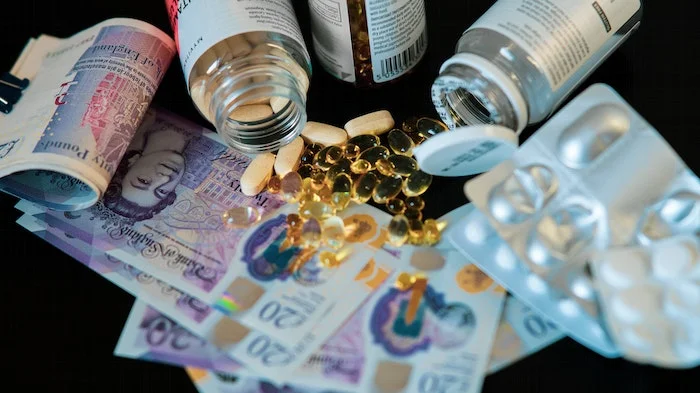
MDMA typically comes in the form of a tablet or a pill.
However, it is possible to obtain MDMA in a crystal or powder form.
A global drug survey found the most common methods of using MDMA around the world:
- swallowing a pill (48.9%)
- wrapping in paper (15.3%)
- dabbing & licking powder or crystal (15/1%)
- snorting (10.3%)
- dissolving into a liquid (9.7%)
This means that 90% of users take MDMA orally. [9]
What is in MDMA?

MDMA is synthetic. This means that it is not a natural substance and that it has to be man-made.
Methylenedioxymethamphetamine is derived or made from amphetamine and is part of the phenethylamine chemical group or family.
Like with any illegal substance, it is not always possible to tell what exactly is inside the tablets, powders and crystals that are sold as MDMA.
Many other substances can be added to MDMA or ecstasy tablets, some examples of things that have been added to MDMA and identified through testing include:
- ketamine
- caffeine
- diet drugs
- cough medicine
- heroin
- cocaine [10]
How Does MDMA Work?
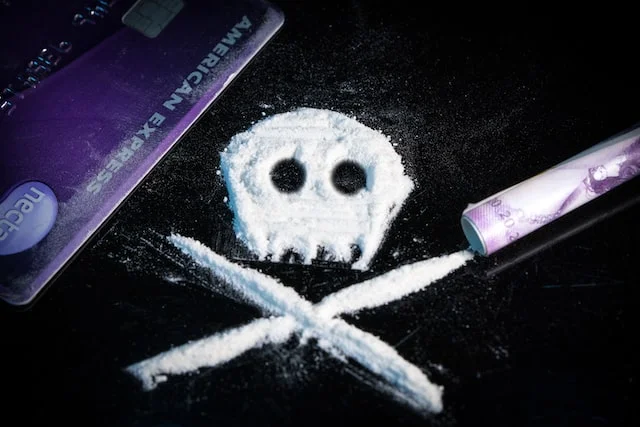
Research has shown that MDMA works by stimulating the production of three chemicals that exist in the brain.
There are:
- Dopamine
- Norepinephrine
- Serotonin
Dopamine is associated with feelings of reward, pleasure, and energy.
Norepinephrine is associated with blood pressure and heart rate.
Serotonin is associated with mood. [11]
These chemicals together can create what may feel like an overall positive high, providing feelings of energy, happiness, excitement, and vigour.
However, MDMA can cause some unpleasant effects.
The Effects of MDMA: Physical Effects

Although MDMA is largely taken for the feelings it can give the user, using MDMA can affect the body as well as the brain.
Short-term Physical Effects of MDMA
- dilated pupils
- grinding teeth
- increases sensitivity to input (visual or physical sensations, as well as sound)
- sweating, difficulty regulating body temperature
- tingly or itchy skin
- feeling overly thirsty or dehydrated (this can lead to drinking excessive amounts of water and can be fatal)
- increase in blood pressure
- increase in heart rate
- unexplained aches or pain in the muscles
- heat stroke
- decrease in appetite
- vomiting or sickness
- convulsions
Long-term Physical Effects of MDMA
- increased tendency towards colds and flu
- damage and impaired liver function [12]
The Effects of MDMA: Psychological Effects

Most people use MDMA to get the ‘rush’ of feelings associated with being high on ecstasy.
MDMA does not only cause positive feelings – it can also have a hand in stimulating negative ones.
Short-term Psychological Effects of MDMA
- feeling like you are floating
- experiencing things that are not there (hallucinations)
- acting on impulse, or being irrational
- feeling irritable
- feeling paranoid
- acting with aggression
Long-term Psychological Effects of MDMA
- addiction
- depression
- issues with memory
- issues with concentrating and problem-solving [13]
How Long Does It Take To Feel the Effect of MDMA?
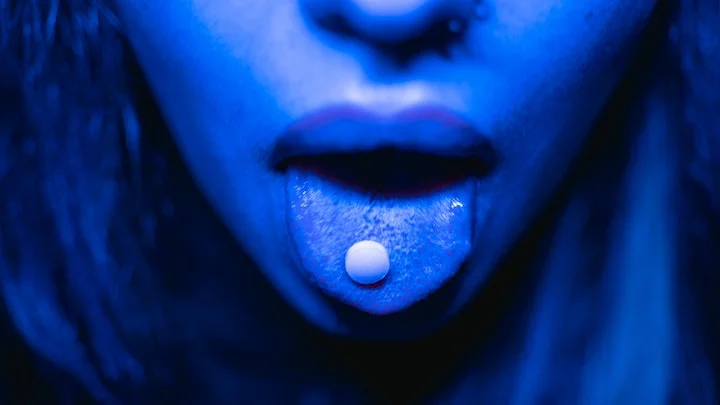
Usually, it takes between 20 and 60 minutes after use before people start to feel the effects of MDMA.
These feelings can last for anywhere up to 4 hours after first use. [14]
If you take more tablets or take them back-to-back, it may be possible that the feeling of being high lasts for longer.
What Kinds of Drugs Testing Can Identify MDMA?
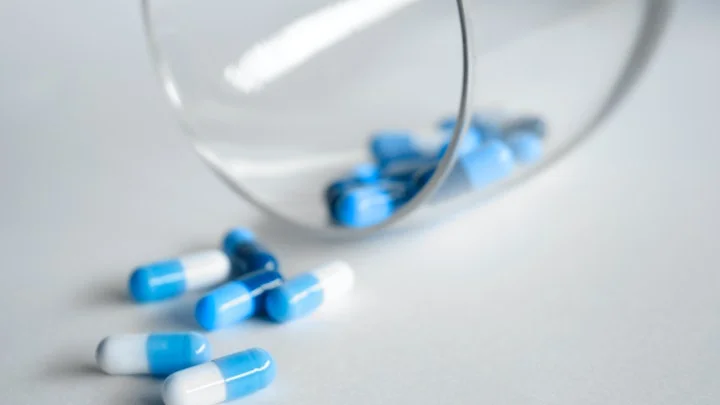
In certain circumstances, it is possible that you may be asked to provide a sample for a drug test.
There are several different types of drug tests that can identify the presence of MDMA in your system by taking a sample of different parts of bodily products or waste and conducting chemical examinations.
MDMA can be identified through:
- Hair Tests
- Blood Tests
- Saliva Tests
- Urine Tests [15]
How Do MDMA Drug Tests Work?

Research into the human use of MDMA has found that MDMA is associated with the production of specific metabolites.
A metabolite is a substance that helps the body break down another substance.
They are naturally occurring chemicals in the body that are produced or used when the body starts to break down (or metabolise) substances.
Metabolites associated with MDMA use include:
- glucuronidated 4-hydroxy-3-methoxymethamphetamine (HMMA)
- 4-hydroxy-3-methoxyamphetamine (HMA)
This means that if you have taken MDMA, it is possible to identify this through testing for the presence of HMMA and HMA as well as the actual compound of MDMA itself. [16]
How Long Does MDMA Stay in Your System?

As a general rule, the longer the time between the use of a drug and the drug testing, the less likely drugs are to show up through a drug screening.
Although different drugs tend to have different detection windows or detection times (the period of time that a substance is identifiable in your system) these are also largely dependent on many different factors.
Some of these factors include:
- the metabolic rate of the user (how quickly the body can break substances down)
- size, height and weight of the user
- age of the user
- how frequently the drug is taken by the user
- how strong the drug is
- how much of the drug has been taken by the user
- if other drugs have been taken by the user
- the general health of the user
Despite these variables, research has shown that each different type of drug test can identify MDMA for a different period.
Detecting MDMA through Hair Testing
A drug test can identify MDMA in your hair (and/or hair follicles) for 3 months after it was taken. [17]
Detecting MDMA through Blood Testing
A drug test can identify MDMA in your blood for between 1-2 days after it was taken.
This means that if you have a blood test for MDMA less than 48 hours after use, your test is likely to come back positive. [18]
Detecting MDMA through Saliva Testing
A drug test can identify MDMA in your saliva for between 1-2 days after it was taken.
This means that if you have a saliva test for MDMA less than 48 hours after use, your test is likely to come back positive. [19]
Detecting MDMA through Urine Testing
A drug test can identify MDMA in your urine for up to 3 days after it was taken.
This means that if you have a saliva test for MDMA less than 72 hours after use, your test is likely to come back positive. [20]
Drugs Testing: The Legalities

There are two main capacities where you may be asked to provide a sample for drug testing.
Drugs Tests at Work
There may be particular circumstances where your employer asks you to provide a sample for drug testing.
However, this is only allowed when the drug testing is either:
- routine (happening consistently to ensure safety)
or
- fair (the employer has reasonable grounds to request you provide a sample)
It is not illegal for you to refuse to comply with drug testing at work. However, if you do not, your employer has the right to take disciplinary action against you. [21]
Drugs Test by Police
There are specific instances where police can ask you to provide a sample for a drug test to identify if you have been using illicit drugs.
These instances are known as ‘trigger offences’, and they include:
- offences or crimes related to theft (or attempted theft)
- offences or crimes related to robbery (or attempted robbery)
- offences or crimes related to burglary (or attempted burglary)
- offences or crimes related to fraud
- offences or crimes related to stolen goods
- offences or crimes related to the possession of Class A drugs
- any offences or crimes related to the possession of Class A drugs with intent to supply
You can be asked to provide a sample on the roadside, or whilst in the police station after being arrested.
If you refuse to give a sample to a police officer, there are possible legal consequences – you may face a sentence in prison or a fine. [22]
MDMA Addiction Treatment Options

If you believe you or a loved one are struggling with an MDMA or ecstasy addiction, there are several ways you can access support.
Withdrawing from MDMA:
To begin your journey to recover from MDMA addiction, you may be offered a medical detox.
A detox is a process of refraining from taking a substance and allowing your body the time it needs to readjust to functioning without the presence of the drug.
Detoxing can be a difficult process.
Some withdrawal symptoms you may experience during detox from ecstasy/ MDMA include:
- MDMA cravings
- difficulty sleeping
- low mood
- anxiety or stress
- feeling paranoid
- experiencing hallucinations
- feeling tired
- feeling dizzy or disoriented
- aches and pains in the body
- low or decreased appetite
During the detox phase, you will be monitored by medical and psychological professionals to ensure you are safe and well throughout the process.
A detox programme is only the beginning of addiction treatment. There are many different approaches to treatment that you can take.
Some forms of addiction treatment for example can include:
- Acceptance and Commitment Therapy
- Brief Interventions
- Co-dependency Treatment
- Cognitive Behavioural Therapy (CBT)
- Dialectical Behavioural Therapy (DBT)
- Family Therapy
- Group Therapy
- Holistic Therapy/ Alternative Therapy (Art Therapy, Music Therapy, Equine Therapy, etc).
- Individual Therapy (1-1 Therapy)
- Motivational Enhancement
- Motivational Interviewing
- Psychotherapy
- Twelve-Step Facilitation Treatment (TSF)
- contingency management
- therapeutic communities or self-help groups
Get Help Today
Often it is difficult to find a way to speak about the things we are experiencing. You may feel that you are struggling alone, but this does not have to be the case.
If you are ready to access support for your use of MDMA, you can contact Rehab Recovery at 0800 088 66 86 or use the online form to request a call back from a member of our specialist team about accessing support at a local MDMA rehab centre.
If you are uncomfortable with speaking over the phone, you can use our free chat service at any time of day, to speak with a professional virtually.
You can begin your journey to regaining control by speaking with a team of medical professionals all trained to know how best to help you.
References
[1] https://nida.nih.gov/publications/research-reports/mdma-ecstasy-abuse/what-mdma
[2] https://nida.nih.gov/publications/research-reports/mdma-ecstasy-abuse/what-mdma
[3] https://www.who.int/health-topics/drugs-psychoactive
[4] https://www.ncbi.nlm.nih.gov/pmc/articles/PMC2997873/
[7] https://www.dea.gov/factsheets/ecstasy-or-mdma-also-known-molly
[8] https://www.ncbi.nlm.nih.gov/pmc/articles/PMC2717897/
[9] https://www.globaldrugsurvey.com/mdma-how-you-take-it-might-be-more-important-that-you-think/
[10] https://nida.nih.gov/publications/research-reports/mdma-ecstasy-abuse/what-mdma
[11] https://nida.nih.gov/publications/drugfacts/mdma-ecstasymolly
[12] https://adf.org.au/drug-facts/mdma/
[13] https://adf.org.au/drug-facts/mdma/
[14] https://adf.org.au/drug-facts/mdma/
[15] https://www.ncbi.nlm.nih.gov/pmc/articles/PMC3159864/
[16] https://www.ncbi.nlm.nih.gov/pmc/articles/PMC3159864/
[17] https://www.ncbi.nlm.nih.gov/pmc/articles/PMC5601020/
[18] https://pubmed.ncbi.nlm.nih.gov/17579960/
[19] https://www.ncbi.nlm.nih.gov/pmc/articles/PMC3178664/
[20] https://www.ncbi.nlm.nih.gov/pmc/articles/PMC3159864/
[21] https://www.gov.uk/monitoring-work-workers-rights/drug-testing
[22] https://www.gov.uk/government/collections/drug-testing-on-arrest-guidance-for-police-forces




